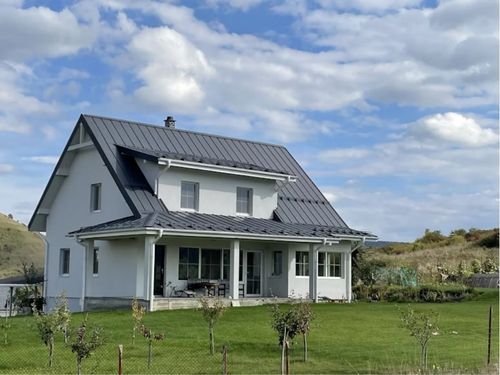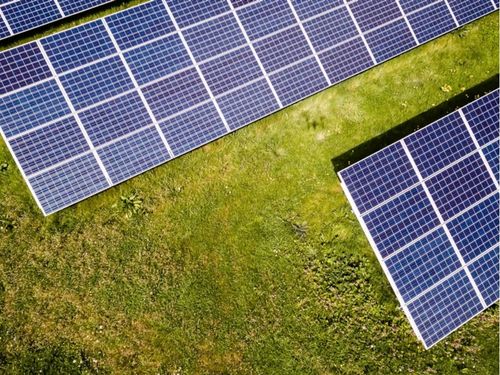As families seek ways to save money, minimize environmental impact, and ensure a reliable power supply, solar energy has become an increasingly attractive option. Solar panels harness the sun’s energy to generate electricity, providing a renewable, sustainable, and cost-effective source of power for modern homes. Beyond the obvious environmental benefits, solar energy offers financial, lifestyle, and long-term advantages for families.
Powerful Benefits of Solar Energy for Smart Family Homes

1. Substantial Savings on Energy Bills
Electricity costs have been steadily rising in many regions, placing an increasing strain on household budgets—especially for families with multiple energy demands, including appliances, lighting, heating, cooling, and electronic devices. For larger households, these monthly bills can quickly add up, often becoming a significant portion of family expenses. Solar panels provide a practical solution, enabling homes to generate their own electricity directly from sunlight. This reduces dependence on utility companies and allows families to enjoy consistently lower energy bills. Over time, the savings can be substantial, making the upfront investment in solar panels a smart financial decision for households seeking long-term economic relief.
In addition to lowering monthly expenses, solar energy can create an extra revenue stream for families through net metering programs. Many regions allow homeowners to sell surplus electricity back to the grid, meaning that any energy your solar panels generate beyond your household needs doesn’t go to waste—it can earn you credits or direct income. This not only maximizes the value of your solar system but also protects against unpredictable rate hikes and seasonal fluctuations in electricity costs. For families, the ability to manage energy consumption, save money, and even profit from excess power brings both financial predictability and peace of mind.
2. Environmental Benefits
Switching to solar power allows families to significantly reduce their reliance on fossil fuels, which are major contributors to air pollution and greenhouse gas emissions. Unlike traditional electricity generation, which often relies on coal, oil, or natural gas, solar energy produces clean electricity without releasing harmful pollutants. A single home solar panel system can prevent hundreds of kilograms of carbon dioxide from entering the atmosphere every year, making a measurable impact on environmental health. For families, this reduction translates into a direct and meaningful contribution to slowing climate change and protecting the planet for future generations.
Beyond reducing emissions, adopting solar energy encourages a broader lifestyle of sustainability. Families often become more conscious of their energy use, exploring energy-efficient appliances, water conservation, and waste reduction practices. Children raised in solar-powered households gain first-hand lessons in environmental responsibility, learning the importance of protecting natural resources and understanding how individual choices can collectively make a difference. By embracing renewable energy, families not only reduce their carbon footprint but also cultivate eco-conscious habits that can last a lifetime.
3. Energy Security and Independence
Solar energy gives families a level of independence from utility companies and the unpredictability of energy markets. Electricity prices can fluctuate due to factors such as fuel costs, demand spikes, or regional outages, leaving households vulnerable to sudden increases in bills or even temporary power outages. By generating their own electricity, families can stabilize their energy expenses and reduce reliance on external providers. This independence ensures greater control over household energy usage and provides peace of mind, knowing that basic energy needs can be met consistently.
When paired with home battery storage systems, solar panels become even more powerful. Excess energy generated during sunny days can be stored and used at night or during periods of low sunlight, ensuring a continuous electricity supply. In regions prone to blackouts, storms, or other natural disasters, a solar-powered home with a stored energy system can maintain essential functions such as lighting, refrigeration, and heating. This level of energy security, which traditional electricity grids often struggle to guarantee, enables families to remain safe, comfortable, and self-sufficient even in unexpected situations.
4. Increased Home Value and Market Appeal
Homes equipped with solar energy systems often enjoy higher resale values and attract buyers more quickly than comparable properties without solar power systems. In today’s real estate market, buyers are increasingly aware of the financial and environmental benefits of renewable energy. A home with solar panels signals lower long-term utility costs and a reduced carbon footprint, making it a more appealing investment for both environmentally conscious and budget-savvy buyers. This growing demand for solar-powered homes has created a clear trend: properties with clean energy solutions tend to stand out in competitive housing markets.
Beyond monetary value, installing solar panels enhances a home’s overall market appeal by showcasing a commitment to sustainability and modern technology. Prospective buyers often perceive solar-powered homes as forward-thinking and energy-efficient, which can give a property an edge over similar listings. For families considering the future, investing in solar panels isn’t just about saving money on electricity—it’s also about enhancing the home’s attractiveness and increasing its resale potential. In essence, solar energy transforms a property into a long-term asset that benefits both current homeowners and future buyers.
5. Minimal Maintenance and Long Lifespan
Modern solar panels are designed with durability and resilience in mind, capable of withstanding harsh weather conditions, including heavy rain, strong winds, and even hail. Unlike other home systems that may require frequent repairs or part replacements, solar panels need minimal upkeep—usually just occasional cleaning to remove dust, leaves, or debris. This low-maintenance nature makes them an ideal solution for busy families who want the benefits of renewable energy without the hassle of constant monitoring or maintenance tasks.
In addition to requiring little attention, solar panels boast impressive longevity. Most systems are built to last 25 years or more, providing decades of reliable energy generation. With proper installation and occasional checks, families can enjoy a consistent electricity supply and savings for generations. This combination of durability and low maintenance ensures that solar energy is not only a sustainable choice but also a convenient one, allowing households to focus on daily life while benefiting from long-term energy efficiency and reliability.
6. Government Incentives, Rebates, and Tax Credits
To encourage the adoption of renewable energy, many governments offer a range of incentives, including tax credits, rebates, and grants, to help offset the initial cost of installing solar panels. These programs make solar energy more accessible to families who might otherwise find the upfront investment prohibitive. By reducing the installation costs, these incentives allow households to enjoy the financial benefits of solar energy sooner, making the transition to clean energy both affordable and practical.
Taking advantage of government incentives can also significantly shorten the payback period of a solar system. In some cases, families can recover a substantial portion of their investment within just a few years through savings on energy bills and additional rebates or credits. These financial perks not only make solar energy a smart choice but also a strategically savvy one, transforming what might seem like a costly home upgrade into a long-term asset that pays for itself while contributing to sustainability.
7. Health and Lifestyle Benefits

Using solar energy reduces reliance on electricity generated by coal, natural gas, or other fossil fuels, which are significant sources of air pollution and harmful emissions. By generating clean, renewable electricity, solar-powered homes help improve local air quality and contribute to a healthier environment for families. This reduction in pollutants can have a direct impact on public health, particularly for children, older adults, and individuals with respiratory conditions, making solar energy a choice that benefits not only the planet but also personal well-being.
Beyond environmental and health benefits, adopting solar energy often encourages families to embrace more sustainable lifestyle habits. Many households start pairing their solar systems with energy-efficient appliances, LED lighting, and mindful electricity use. These conscious choices further reduce energy waste and promote eco-friendly living. For families, solar energy is not just about electricity—it’s a gateway to cultivating responsible habits, teaching children the importance of sustainability, and creating a household that prioritizes health, efficiency, and environmental responsibility.
Get ready to score unbeatable Black Friday steals at HOBIBEAR
From cozy winter boots to everyday sneakers, HOBIBEAR limited-time deals make it easy to upgrade little wardrobes without stretching your budget. Every pair is crafted for comfort, adventure, and long-lasting value—perfect for holiday gifting or stocking up for the seasons ahead. Don’t miss your chance to grab these doorbuster favorites at hobibear.com before they’re gone.
8. Educational Opportunities for Children
Installing solar panels in a family home provides children with a hands-on learning experience in science, technology, and environmental sustainability. By observing how sunlight is converted into electricity, children gain a practical understanding of renewable energy principles and the role of clean technology in everyday life. This exposure helps them connect classroom concepts to real-world applications, making lessons about energy and the environment more tangible and engaging.
Beyond scientific understanding, solar energy systems encourage children to develop eco-conscious habits from an early age. Learning the importance of renewable resources and energy conservation fosters a sense of personal responsibility and environmental stewardship. Families can involve children in simple practices, such as monitoring energy use, tracking solar production, or understanding how excess energy is stored and utilized. These experiences cultivate long-lasting awareness and values, teaching the next generation that individual actions can have a meaningful impact on protecting the planet.
9. Long-Term Financial Security
Although installing solar panels involves an initial investment, the long-term financial advantages are significant for families. By generating their own electricity, households can drastically reduce or even eliminate monthly energy bills. Additionally, many regions offer net metering programs that enable homeowners to sell excess electricity back to the grid, generating an additional source of income. These combined benefits make solar energy a financially savvy choice that can provide decades of economic returns.
Over time, solar energy also serves as a hedge against rising energy costs. Electricity prices tend to increase steadily, and relying solely on utility providers can leave families vulnerable to these fluctuations. By investing in solar panels, households can enjoy predictable energy expenses and increased financial stability. Coupled with the potential increase in property value, solar installations become more than just a cost-saving measure—they transform into a long-term investment that benefits the family both financially and strategically.
10. Contribution to a Sustainable Future
One of the most fulfilling benefits of installing solar panels is the positive impact families have on building a sustainable future. Every household that adopts solar energy helps reduce its dependence on non-renewable resources, such as coal, oil, and natural gas, thereby easing the strain on the planet’s finite reserves. By producing clean, renewable electricity, families contribute to the growth of a greener energy landscape, demonstrating that individual choices can collectively drive significant environmental change.
Moreover, solar-powered homes often inspire neighbors, friends, and communities to consider renewable energy solutions. Families become visible advocates for sustainability, demonstrating that small, practical steps—such as installing solar panels or conserving energy—can make a meaningful difference. Embracing solar energy not only benefits the household but also contributes to a broader movement toward environmental responsibility, encouraging the next generation to value and protect the planet. In this way, choosing solar energy is both a practical decision and a legacy of stewardship for future generations.
A Smart, Sustainable Choice for Family Homes
Solar energy is no longer just an alternative—it’s a practical, cost-effective, and sustainable solution for family homes. From reducing monthly electricity bills and increasing energy independence to lowering carbon footprints and adding property value, the benefits are both immediate and long-lasting. Families who embrace solar power not only secure financial and lifestyle advantages but also play a crucial role in protecting the environment for future generations. With government incentives, minimal maintenance requirements, and educational opportunities for children, solar energy empowers families to make informed, responsible, and forward-thinking decisions about their energy choices.


